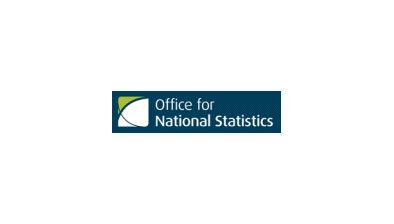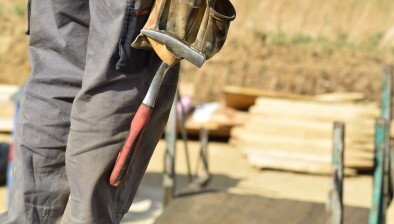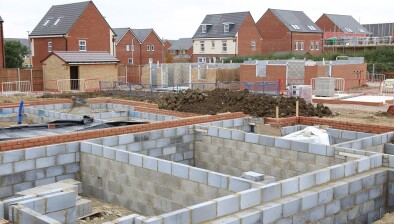ONS: Construction output falls by 1.4% in April

Monthly construction output is estimated to have decreased by 1.4% in volume terms in April 2024, with the monthly value in level terms at £14,940 million, the Office for National Statistics (ONS) has reported.
The fall in monthly output came from decreases in both new work (1.9% fall), and repair and maintenance (0.8% fall); anecdotal evidence from survey returns suggests effects of heavy rainfall and strong winds affected output in April.
At the sector level, seven out of the nine sectors saw a fall in April 2024; the main contributors to the monthly decrease were private housing new work, and private housing repair and maintenance, which fell by 4.4% and 2.5%, respectively.
Construction output is estimated to have decreased by 2.2% in the three months to April 2024; this came from decreases in both new work (2.8% fall), and repair and maintenance (1.4% fall) and is the sixth consecutive fall in the three-monthly series.
The Federation of Master Builders (FMB) said the 1.4% fall in construction output marks a worrying trend in what is happening to the construction sector.
Brian Berry, chief executive of the FMB, said: “The latest ONS figures show a worrying trend emerging, with decline in construction output recorded in each of the first four months of 2024. While survey data collected by the ONS indicates that continued wet and windy conditions once again contributed to the struggles of construction firms, the stagnation seen across the UK economy suggests this is part of a wider problem.
“The performance of the construction industry is a key element of the UK’s overall economic performance. With the General Election fast approaching, and all of the major political parties claiming sustainable long-term growth will be a priority, it is essential that construction receives the attention it needs. By boosting house building rates, providing support to people looking to carry out energy efficient upgrades to their homes, and taking steps to address the current skills crisis in construction, the next government can set the UK on the road to a brighter future.”
Scott Motley, head of programme, project and cost management at AECOM, said the industry will be disappointed it hasn’t followed the broader economy in returning to growth, and will be relying on the next government to provide a shot in the arm for the industry.
He added: “After an uptick in the broader economic climate, many will be hopeful that construction industry output will soon follow suit.
“Importantly, the upcoming General Election will provide clarity on the nation’s future direction earlier than anticipated, bringing with it the prospect of a new infrastructure strategy and greater confidence in investment decisions in the second half of the year. However, the continued high cost of doing business will still make for challenging landscape post-election until interest rates drop significantly.”
Clive Docwra, managing director of property and construction consultancy McBains, said: “After last month’s figures showed the construction sector still mired in technical recession, today’s figures come as a further blow for the industry.
“A close to two per cent fall in new work across the board highlights the continuing caution shown by investors being reluctant to commit to new projects while so many economic uncertainties remain. New work in private housing in particular remains in the doldrums, seeing a fall of more than four per cent.
“Many in the industry are crossing their fingers for a post-election boost, but today’s figures show that whichever party forms the next government has a job on its hands to restore confidence and encourage growth.”
Michael Wynne, director of the sustainable housebuilder Q New Homes, added: “Construction output is still shrinking, and the industry once again has the unwanted distinction of being the weakest sector in a weak economy.
“Today’s data is disappointing on virtually every level. The contraction isn’t just confined to certain subsectors of the construction industry either, with seven out of nine heading in the wrong direction.
“And while April’s poor weather – which delayed work on many building sites – might explain the sharp drop in that one month, April was no anomaly. The less volatile quarterly measure of output also shows a 2.2% contraction – the sixth time in a row it has been stuck in reverse.
“Yet for all the bleakness, there are glimmers of optimism. Materials cost inflation – which wiped out many smaller builders’ profit margins during the dark days of 2023 – continues to soften.
“While interest rates remain painfully high, there is widespread hope that the Bank of England will finally start to reduce the Base Rate once the election is out of the way – which will make it easier for developers to purchase land and build new homes, and make those homes more affordable for buyers.
“With both the Conservatives and Labour promising to support housebuilders and make it easier for first-time buyers to own their own home, the prospect of a more builder-friendly Government is tantalising and overdue.
“Whoever wins, a rationalisation of Britain’s dysfunctional planning system is urgently required as it is needlessly holding back residential construction and pushing the housing crisis from bad to worse.”
















